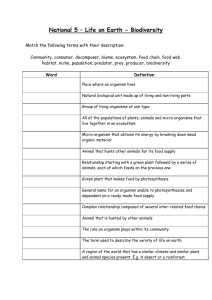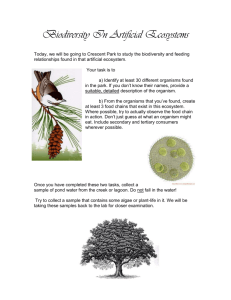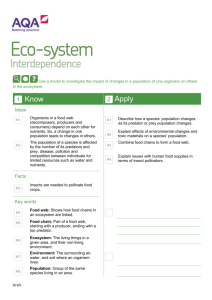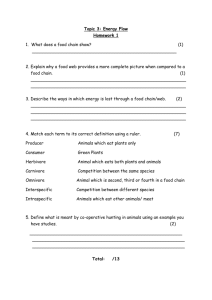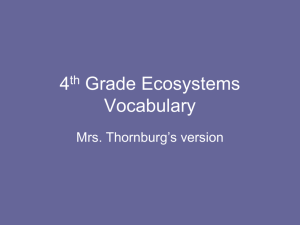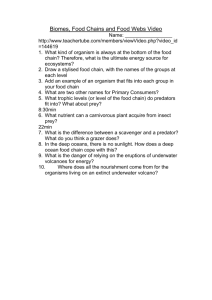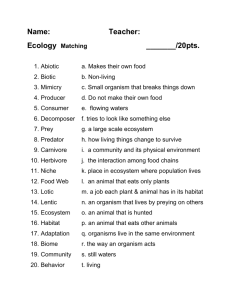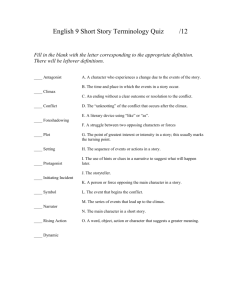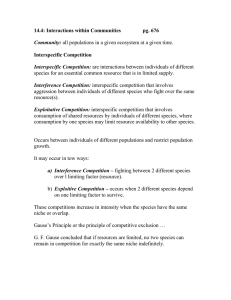species richness - Course
advertisement
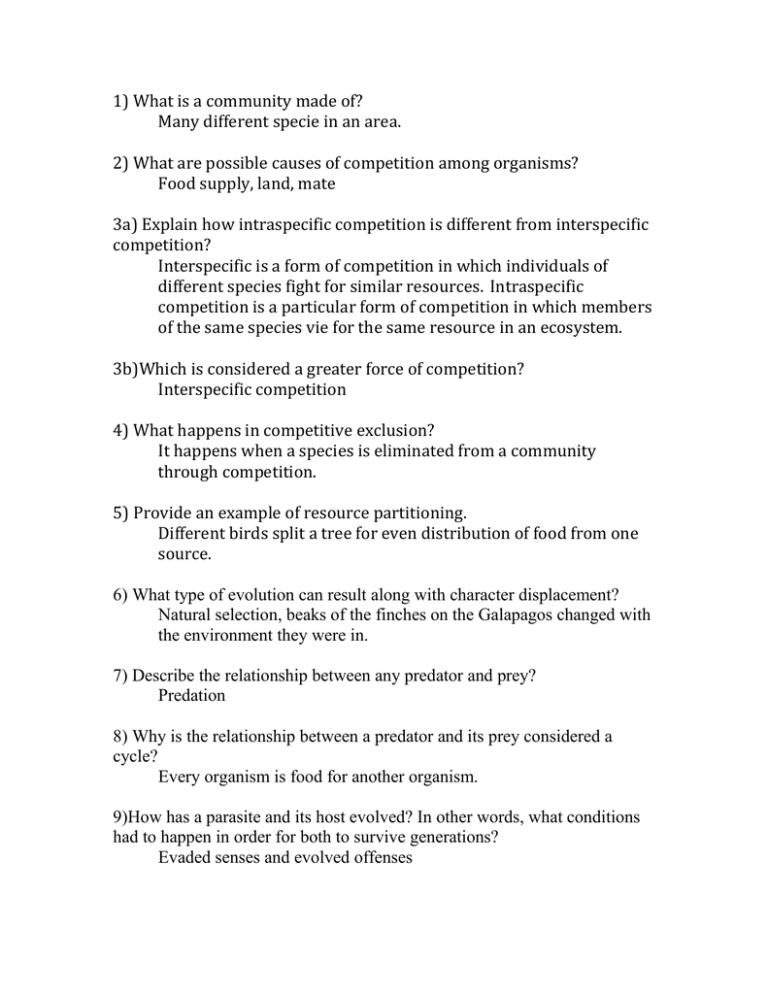
1) What is a community made of? Many different specie in an area. 2) What are possible causes of competition among organisms? Food supply, land, mate 3a) Explain how intraspecific competition is different from interspecific competition? Interspecific is a form of competition in which individuals of different species fight for similar resources. Intraspecific competition is a particular form of competition in which members of the same species vie for the same resource in an ecosystem. 3b)Which is considered a greater force of competition? Interspecific competition 4) What happens in competitive exclusion? It happens when a species is eliminated from a community through competition. 5) Provide an example of resource partitioning. Different birds split a tree for even distribution of food from one source. 6) What type of evolution can result along with character displacement? Natural selection, beaks of the finches on the Galapagos changed with the environment they were in. 7) Describe the relationship between any predator and prey? Predation 8) Why is the relationship between a predator and its prey considered a cycle? Every organism is food for another organism. 9)How has a parasite and its host evolved? In other words, what conditions had to happen in order for both to survive generations? Evaded senses and evolved offenses 10) List five symbiotic relationships and who benefits in each relationship or what happens in the relationship. A) Predation-predator to prey B) Competitive- 2 predators for the same food C) Parasitism- human to tapeworm D) Mutualistic- both are benefited E) Commensal- one is benefited while the other is not affected 11) Identify five responses to predation and provide an example of each. A) Run/flee- turtles going inside their shells B) Chemical defenses: poison C) Hide D) Mimicry: harmless snake mimicking poisonous ones E) Deception- porcupine with its needles 12) List and define the three properties of a community. A) Population- all the inhabitance of a species in an area B) Richness-the number of species in an area C) Evenness- the relative abundance of species in a community compared with another. 13) Why is there higher species richness near the equator? Communities near the equator get more sunlight, leading to more species to co-exist with each other. 14a) Define stability. The quality of maintaining a constant character in the presence of forces in which threaten to disturb it. 14b) What factors would create a stabile ecosystem or community? Environmental resistance and biotic potential 15) What is succession? The replacing of one dominant type of species or community by another in an ecosystem until it reaches a stable climax 16) Compare and contrast a pioneer species and a climax community. Pioneer Species are the first to colonize after a catastrophe, wile climax communities are those which have animals long after a disaster. 17) What type of succession occurs when a site that has already supported life is destroyed and then redevelops? Climax Communities 18) Biodiversity is a measurement of species richness and species evenness. 19) What is the predominant cause of the deduction in the world’s biodiversity? Pollution and the destruction of the ozone layer 20) How does a utilitarian value and non-utilitarian value of biodiversity differ? Utilitarian value: The value something has as a means to another’s end Non-utilitarian value: The value of something has no means to another’s end 21) What is bioaccumulation? What is biomagnification? Bioaccumulation refers to the accumulation of substances, such as pesticides, or other organic chemicals in an organism. Biomagnification is the concentration of toxins in an organism as a result of its ingesting other plants or animals in which the toxins are more widely distributed.
